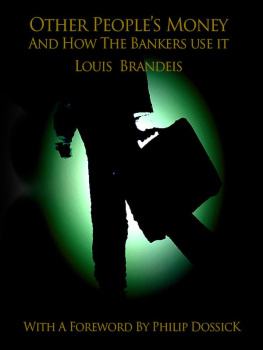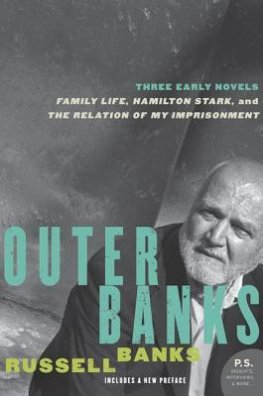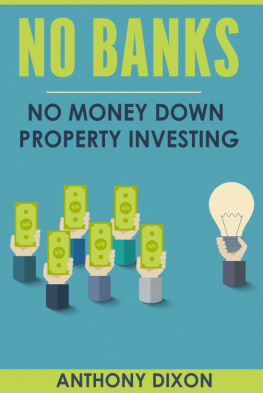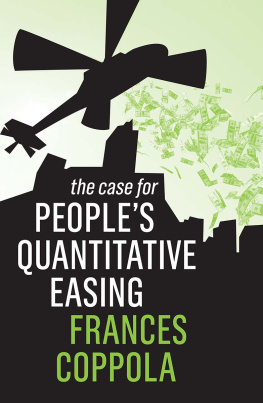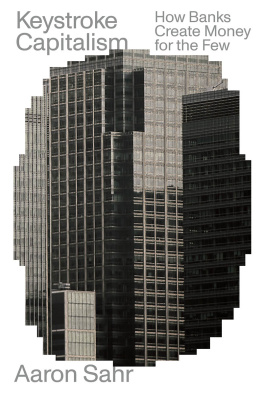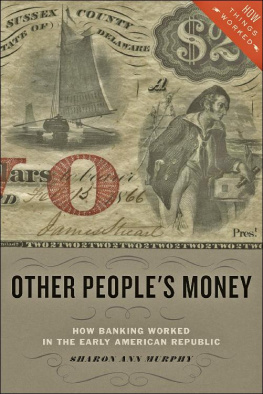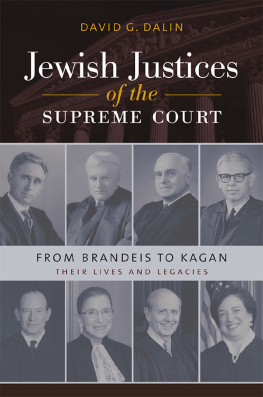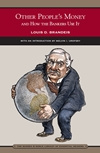OTHER PEOPLE'S MONEY
AND HOW THE BANKERS USE IT
By
Louis D. Brandeis
Adaptation
By
Philip Dossick
Copyright 2012 Philip Dossick
All Rights Reserved
No part of this book may be reproduced or utilized in any form or by any means, electronic or mechanical, including photocopying, recording or by any information storage and retrieval system without express permission in writing.
ALSO BY PHILIP DOSSICK
NONFICTION
Transplant
Transplant: 35th Anniversary Edition
Sex And Dreams
Aztecs: Epoch Of Social Revolution
FICTION
The P.O.W.
Mark Twain In Seattle
Raymond Chowder And Bob Skloot Must Die
CLASSIC ADAPTATIONS
Dracula
Frankenstein
The Scarlet Letter
Great Expectations
Looking Backward 2000-1887
Notes From The Underground
Jane Eyre
Other Peoples Money And How The Bankers Use It
Adventures Of Huckleberry Finn
The Adventures Of Tom Sawyer
Beyond Good And Evil
Ethan Frome
A Tramp Abroad
Benjamin Franklin: My Autobiography
Published in the United States by Editions Artisan Devereaux, LLC
Book design by Tomas Fessenden
Production manager: Lucy Buck
Philip Dossick
Editor-In-Chief
Classic Books Division
ISBN: 9781936694266
FOREWORD
You may have seen the advertisements for one bank or another, in which grateful customers recite the tale of how years and years ago, the bank lent moneyno, invested in their great grandfathers hot dog stand (or pizza parlor or Chinese restaurantor fill in the punch line)and nowbecause the bank cared a veritable palace stands in its place, in a building owned by the family, perhaps on a street owned by the family, with its brand-new factory next door. All because the bank values its small business clients, and seekslong-term business relationships with them.
The banks wish to have a personal relationship with you.
They wish to enable you in your quest for success.
You come first.
After all, everyone knows bankers are just waiting to finance the little guy, the businessperson starting outwho just needs a loan to make his or her dreams come true.
Of course.
The bank wants to have a personal relationship with you! They understand it is the entrepreneurs, the geeks toiling away in their garages that are capitalism's best hope!
They will invent the Next Great Thing.
The banker is your champion!
Billions have been spent on image making to convince you it is so. The metrics have been weighed and measured, the message fine-tuned to perfection: a tug at the heartstrings; a bit of humor; and all resistance is washed away through the genius of Madison Avenue. Your neighborhood banker is your friend.
You will be treated like family.
Think again, says Louis Brandeis in Other Peoples Money ; its a canard. A fable. A whopper. A Tall Tale. Hogwash! Bunkum!
The banks are not your friends.
Bankers only lend money to those enterprises that represent no risk whatsoever to the bank. They do not seek to support you. They exist solely to consolidate their power.
Looking backward, America's transformation into an industrial juggernaut owed nothing whatsoever to the banking establishment. On the contrary: private equity fueled our greatest entrepreneurs.
Brandeis describes how the "great banks," in their mania to form monopolies like the old AT&T, destroyed countless innovative businesses along the way. Further, the banks' annihilatory behavior might not have been quite so egregious, were they not carrying out their deeds with "other people's money." Your money.
That this book was written a century ago makes it that much more astonishing for its prescience.
Today, we are still whistling past the graveyard. Though the national scene has become international, though the players names have changed, the patterns of destructive behavior Brandeis detailed, the poisonous social consequences he foresaw, are eerily familiar: everything Louis Brandeis said about our financial system remains true today. Only more so.
Louis Dembitz Brandeis (November 13, 1856 October 5, 1941) served as an Associate Justice on the Supreme Court of the United States from 1916 to 1939.
PHILIP DOSSICK
CHAPTER I
OUR FINANCIAL OLIGARCHY
President Woodrow Wilson declared in 1911, A great industrial nation is controlled by its system of credit.
The growth of the nation, therefore, and all our activities are in the hands of a few men, who, even if their actions be honest and intended for the public interest, are necessarily concentrated upon the great undertakings in which their own money is involved and who, necessarily, by every reason of their own limitations, chill and check and destroy genuine economic freedom.
The great monopoly in this country is the money monopoly. So long as that exists, our old variety and freedom and individual energy of development are out of the question.
The Pujo Committee, appointed by Congress in 1912, found: "Far more dangerous than all that has happened to us in the past in the way of elimination of competition in industry is the control of credit through the domination of these groups over our banks and industries."
"Whether under a different currency system the resources in our banks would be greater or less is comparatively immaterial if they continue to be controlled by a small group."
"It is impossible that there should be competition with all the facilities for raising money or selling large issues of bonds in the hands of these few bankers and their partners and allies, who together dominate the financial policies of most of the existing systems.
The acts of this inner group, as here described, have nevertheless been more destructive of competition than anything accomplished by the trusts, for they strike at the very vitals of potential competition in every industry that is under their protection, a condition which if permitted to continue, will render impossible all attempts to restore normal competitive conditions in the industrial world.
"If the arteries of credit now clogged well-nigh to choking by the obstructions created through the control of these groups are opened so that they may be permitted freely to play their important part in the financial system, competition in large enterprises will become possible and business can be conducted on its merits instead of being subject to the tribute and the good will of this handful of self-constituted trustees of the national prosperity."
The promise of New Freedom was joyously proclaimed in 1913.
The facts that the Pujo Investigating Committee and its able Counsel, Mr. Samuel Untermyer, have laid before the country show clearly the means by which a few men control the business of America. The report proposes measures that promise some relief. Additional remedies will be proposed. Congress will soon be called upon to act.
How shall the emancipation be wrought?
On what lines shall we proceed? The facts, when fully understood, will teach us.
THE DOMINANT ELEMENT
The dominant element in our financial oligarchy is the investment banker. Associated banks, trust companies and life insurance companies are his tools. Controlled railroads, public service and industrial corporations are his subjects.
Though properly but middlemen, these bankers bestride as masters America's business world, so that practically no large enterprise can be undertaken successfully without their participation or approval. These bankers are, of course, able men possessed of large fortunes; but the most potent factor in their control of business is not the possession of extraordinary ability or huge wealth. The key to their power is Combination concentration intensive and comprehensive advancing on three distinct lines:
Next page
